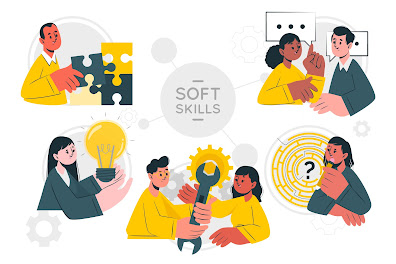The Imperative of Continuous Professional Development for L3 CAVA Assessors
Introduction
In the ever-evolving landscape of vocational education, where industries are shaped by technological advancements and changing demands, the role of assessors becomes paramount. Level 3 CAVA assessors, tasked with evaluating learners in vocational contexts, hold a key position in shaping the future workforce. However, to fulfil this crucial role effectively, assessors must engage in continuous professional development (CPD) and stay abreast of industry trends and assessment methodologies.
Understanding the Dynamics of Continuous Professional Development
Continuous professional development is more than just a requirement; it's a commitment to excellence. For L3 CAVA assessors, this means an ongoing journey of learning, adapting, and refining their skills to align with the ever-changing vocational landscape. The rationale behind this commitment lies in the positive impact it has on both the quality of vocational education and the success of learners.
Staying Updated with Industry Trends
One of the primary reasons for assessors to engage in continuous professional development is to stay updated with industry trends. Industries are dynamic entities, constantly influenced by technological advancements, legislative changes, and evolving best practices. As assessors, understanding these shifts is essential to ensure that vocational education remains relevant and prepares learners for the realities of the workplace.
By staying updated, assessors can integrate the latest industry knowledge into their assessments. This not only enhances the credibility of the assessment process but also equips learners with the most current and applicable skills. For instance, in a rapidly digitizing world, assessors need to be well-versed in the latest technologies relevant to the vocational fields they assess, ensuring that learners are adequately prepared for the demands of modern workplaces.
Embracing Evolving Assessment Methodologies
Assessment methodologies are not static; they evolve in response to educational research, pedagogical advancements, and changing societal needs. Engaging in continuous professional development allows L3 CAVA assessors to embrace these evolving methodologies, enhancing the effectiveness and fairness of assessments.
The adoption of innovative assessment techniques, such as project-based assessments, simulations, or competency-based evaluations, can significantly contribute to a more comprehensive understanding of learners' abilities. Assessors who invest in CPD are better equipped to design assessments that reflect real-world scenarios, providing learners with practical experiences that go beyond theoretical knowledge.
Positive Impact on Vocational Education Quality
The quality of vocational education is directly influenced by the expertise and currency of assessors. Continuous professional development acts as a catalyst for elevating the standard of vocational education by ensuring that assessors are equipped with the latest knowledge, skills, and insights.
Well-informed assessors contribute to the creation of relevant and up-to-date curriculum content. This, in turn, enhances the overall learning experience for students, making vocational education more engaging and applicable to their future careers. When assessors are at the forefront of industry developments, they can guide learners toward the most promising and sought-after skills, aligning educational objectives with the needs of the job market.
Enhancing Learner Success through Informed Assessors
The success of learners in vocational education is intricately linked to the quality of assessments they undergo. Informed assessors play a pivotal role in this success by ensuring that assessments accurately measure the skills and competencies required in the real-world workplace.
1. Relevance to Industry Demands:
Assessors who engage in continuous professional development can tailor assessments to mirror current industry demands. This ensures that learners are not only equipped with theoretical knowledge but also possess practical skills that are immediately applicable in their chosen field.
2. Effective Feedback and Guidance:
Well-informed assessors are better positioned to provide constructive feedback to learners. This feedback goes beyond mere evaluation; it serves as a valuable tool for learners to understand their strengths, areas for improvement, and how to bridge the gap between education and the workforce.
3. Preparation for Rapid Changes:
Industries are characterized by rapid changes, and learners need to be prepared to adapt. Assessors who stay updated through CPD can guide learners on how to navigate evolving industries, instilling in them the adaptability and resilience needed for long-term success.
The Continuous Learning Journey for Assessors
Continuous professional development is not a one-time event but an ongoing journey. It involves participation in workshops, seminars, industry conferences, and staying connected with professional networks. It's about fostering a mindset of curiosity and a commitment to staying relevant in an ever-changing educational landscape.
As we navigate the challenges and opportunities of the 21st century, L3 CAVA assessors play a pivotal role in shaping the workforce of tomorrow. By embracing continuous professional development, these assessors not only invest in their own growth but also contribute significantly to the quality of vocational education and the success of learners. Together, let's elevate vocational education to new heights, ensuring that every learner is equipped with the skills and knowledge needed to thrive in the dynamic world of work.

.jpg)


Comments
Post a Comment